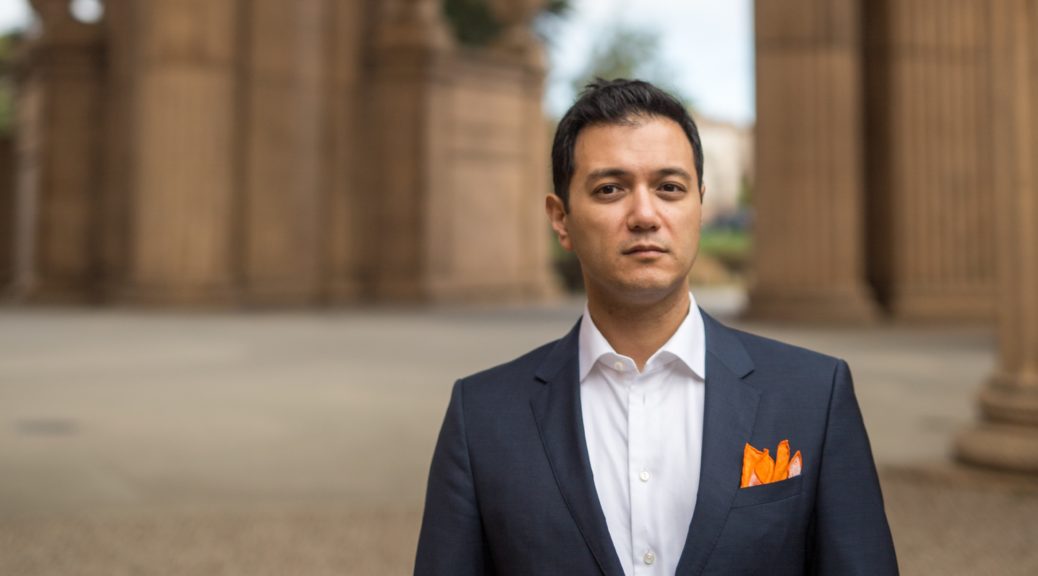
THE METEOR THAT WAS AND IS STRAVINSKY
The S.F. Symphony’s Stravinsky Festival spotlights the mercurial composer who flew like a brilliant comet from Russia to Paris to America, launching new musical expression while changing music forever.
Igor Stravinsky (1882-1971) reminds me of the legendary prince who cut through impenetrable thickets and brambles to reach his prize, revealing a beauty of a different sort. The composer took out the lush undergrowth and cleared the footing, to where the new modern prince could gallop through with puckish delight and see far beyond. He achieved a new clarity and articulation, where rhythm and staccato outbursts supplanted melody as the driving force of music. It was the musical revolution that was the 20th century, and no one played a bigger role in starting it than he, the musical ascetic from the east.
He made his reform in varying ways, as the festival opener demonstrated: With “The Firebird,” he produced one of the most imaginative orchestrations and colorations of any one. And with the rarely heard tone poem “Perséphone” came a leaner, infinitely more poetic palette, comparable to pastel initiatives of post-impressionist painters working down the street in Paris.
This was the complete “Firebird” ballet score for large orchestra, far less known than the later streamlined version for chamber orchestra inevitably heard today. For 48 minutes, the rafters of Davies Hall shimmered in the eye-popping musical colors of this brilliant fairy-tale fantasy. It stems from Russian folklore in which Prince Ivan pairs up with the magical Firebird—in music, a flashing blur of quicksilver—to defeat the equally magical master of malevolence Kashchei.
The music is a feast for the ears. The oversize orchestra features double winds throughout, and budget-busters like three harps, piano, and wild percussion (with wild-ride xylophone flights, via James Nissly) and enlarged brass. The sonic palette is broadened at both ends, from the basement-level’s contrabass opening, then two contra-bassoons, up to piccolo and flute (Tim Day). In the opening month of 2018-19, this was already a season highpoint, with the ensemble and leader Michael Tilson Thomas (who knew Stravinsky in Los Angeles, way back) at the top of their game.
In the texts of André Gide, “Perséphone” veers much closer toward the poetic restraint of the French opera “Pelleas and Melisande.” Where “Firebird” had been a wildfire, “Perséphone” was a tranquil garden of exquisite beauty and transparency, with soft vocal images not to Stravinsky’s taste. The ancient Greek tale about this princess going to Hades and biting on a bewitched fruit bears similarities to both Genesis and to Orpheus.
The format for this quasi-oratorio is striking—orchestra, a Greek-style chorus, a solo tenor, and a narrator. The exquisite woodwinds are remembered, along with the flutes garlanding around Perséphone’s finale. But I admired most of all the unorthodox duet of oboe and tuba (James Button and Jeffrey Anderson).
Clarion-voiced tenor Nicholas Phan sang the French texts, alongside the SFS’ sentimental turn to the leading film actress from mid-20th century for the title role, Leslie Caron, whose French was better than her vocal projection.
Bringing off two such contrasting works, Music Director Michael Tilson Thomas qualifies as a true believer among Stravinskyites. The Symphony Chorus clearly concluded long ago that all those Grammy awards stem from their vowels, not consonants. The French diction was abysmal because of the ensemble’s notorious aversion to most or all consonants. And yet they get Grammy after Grammy with their lovely oo-aa’s.
MUSIC NOTES—The fifth time was the charm: The young Stravinsky was the desperation fifth composer approached about writing “Firebird,” after Glazounov, Liadov, and other Russians who couldn’t or wouldn’t….While in English we accentuate the second syllable of Persephone (rhymes with ebony), the French phrase it per-se-FON…The SFS first tackled the latter work in 1997. But three decades earlier, the upstart Oakland Symphony under Gerhard Samuel had already presented it, with the evocative film actress Yvette Mimieux as narrator. Unforgettable….The SFS will take its Stravinsky scores on tour to Carnegie Hall, NYC, in early October…The later “Firebird” version, for chamber orchestra, is less than half the length of the 46-minute ballet score spotlighted here. But the (much better-known) later version is even more dramatically marked by innovation, adding a shocking fortissimo chord to mark an ambush by the Kashchei, as well as wonderful trombone glissandos suggesting tumult.
STRAVINSKY FESTIVAL opening at the S.F. Symphony and Chorus Sept. 21, Davies Hall, S.F. For info: (415) 864-6000, or go online.